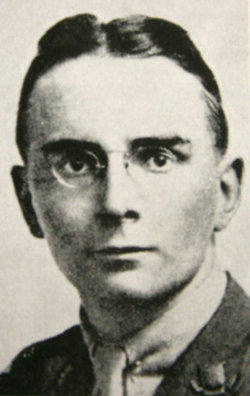Frank Bernard Wearne facts for kids
Quick facts for kids
Frank Bernard Wearne
|
|
|---|---|
 |
|
| Born | 1 March 1894 Kensington, London |
| Died | 28 June 1917 (aged 23) near Loos-en-Gohelle, France |
| Allegiance | |
| Service/ |
|
| Rank | Second lieutenant |
| Unit | Essex Regiment |
| Battles/wars | World War I † |
| Awards | |
Frank Bernard Wearne was a brave English soldier. He was born on March 1, 1894, and sadly passed away on June 28, 1917, at just 23 years old. He received the Victoria Cross, which is the highest award for incredible bravery given to soldiers from Britain and Commonwealth countries. This award is given for showing amazing courage when facing the enemy.
Who Was Frank Wearne?
Frank Bernard Wearne was a Second lieutenant in the British Army. He served with the 3rd Battalion, Essex Regiment, during World War I, also known as the Great War. He was only 23 when he performed the heroic act that earned him the Victoria Cross.
Early Life and Family
Frank was born in Kensington, London. He was the third of five children born to Frank and Ada Wearne. His family experienced great sadness during the war. His older brother, Captain Keith Morris Wearne, also died in World War I in May 1917. He was 24 years old.
Frank's only sister, Edith Ann, had a connection to a famous event. She was a passenger on the RMS Titanic in 1912. Edith survived the sinking, but her husband, Thomas Clinton Pears, was lost. Before joining the army, Frank attended Bromsgrove School.
A Heroic Act: The Victoria Cross
On June 28, 1917, near Loos, France, Second Lieutenant Wearne led a small group of soldiers on a raid. Their goal was to attack the enemy's trenches. They faced very strong resistance but managed to reach their target.
The enemy then launched many counter-attacks. Frank Wearne realized that if his left side of the trench was lost, his men would have to retreat. Showing incredible courage, he jumped onto the edge of the trench. His soldiers followed him. He ran along the top, firing his weapon and throwing bombs at the enemy.
While doing this, he was badly wounded. But he didn't stop. He kept directing his men, telling them what to do. He then received two more wounds, and the last one was fatal. His bravery and determination saved his men and allowed them to hold their position. This amazing act of courage earned him the Victoria Cross.
 | Kyle Baker |
 | Joseph Yoakum |
 | Laura Wheeler Waring |
 | Henry Ossawa Tanner |

